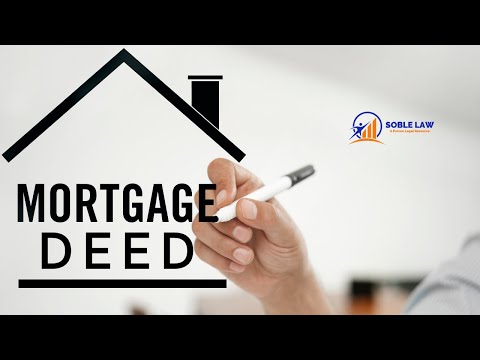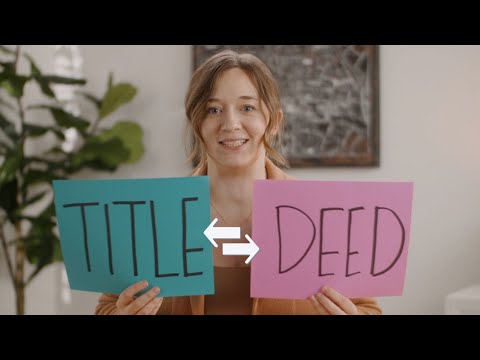Understanding the Mortgage Deed: A Comprehensive Overview
Definition and Importance of a Mortgage Deed
Honey, let’s talk about the mortgage deed. It’s a piece of paper that holds a lot more weight than you might think. It’s not just a bunch of legal jargon – it has real-world, life-altering impact.
Simply put—a mortgage deed, also known as a legal charge, is a binding agreement between you, the borrower, and your lender. It’s proof that you’re on the hook for your mortgage’s conditions, including the pesky little details of how and when you’ll repay it.
Let me tell you, darling, this piece of paper becomes the center of your universe when buying a home with a mortgage. Why, you ask? Well, this little agreement gives the lender the security blanket they need. It makes sure they don’t lose out if you default on the loan.
Components of a Mortgage Deed
Now, let’s dissect this beast—what ingredients go into this stew of a document?
Firstly, we have the loan terms. These outline the core agreement for your mortgage. They include the amount you owe, the interest rate you’re facing, and how long you’ve got to pay it all back. These are the bread and butter of the document.
Next, it outlines the parties involved. That means you’re listed, darling, along with the lender and any guarantors.
Lastly, we’ve got the property description and a little thing they call the “power of sale” clause. If we’re keeping the stew metaphor going, think of these as the spices that give it flavor.
Functionality of a Mortgage Deed
Now that we know what goes into our mortgage deed soup let’s discuss how it all comes together!
Once you’ve put your John Hancock on that deed, it’s shipped off to your conveyancing solicitor. If you’re new to this game, a conveyancing solicitor is the person who’ll handle all the legal and administrative aspects of transferring the property.
From there, the deed is stored until your mortgage is kaput—completely paid off. Where it’s stored is typically with your mortgage provider or the solicitor who acted on your behalf when you bought the property.
You might be wondering, ‘what if I lose my original title deeds?’ Well, sweetheart, keep in mind they might be with your provider or even with the solicitor who represented you when you purchased the property.

Deed of Trust vs Mortgage: Navigating the Legal Jargon
The Concept of ‘Deed of Trust’ Explained
Alright, let’s move onto another inhabitant in the land of legal terms—the Deed of Trust. It’s like the cousin of Mortgage Deed. You know, the one who’s a little different but still part of the family.
In reality, the “deed of Trust” is actually not that different from a mortgage deed. It’s a document that secures a loan by holding the title to real property in trust for the benefit of the lender.
Distinguishing Features between a Deed of Trust and Mortgage Deed
Ok, back to the family reunion. If we’re getting technical, the Deed of Trust and Mortgage Deed have similar features. But, like any family, there are some distinctive differences.
Let’s quickly delve into what we mean by ‘Deed Of Trust Vs Mortgage.’ Here’s the quick and dirty of it—the Deed of Trust involves three parties: the lender, the borrower, and a trustee. The trustee holds the title in trust for the lender.
On conversely, a mortgage deed involves just the lender and the borrower, a sort of tête-à-tête. Here, the title is held directly by the lender. So, when it comes down to “title vs deed,” the main difference lies in who keeps your house’s title while you repay your loan.
Suitability: When to Choose Deed of Trust over a Mortgage Deed
Alright, folks—it’s decision time. When do we choose a Deed of Trust over a Mortgage Deed, and why?
When you borrow large sums of money, like in the case of a mortgage, the lender wants some assurance that they won’t lose all their money if things go south. That’s where these come in.
Both a Deed of Trust and a Mortgage Deed provide that assurance by giving the lender a claim on your home if you don’t repay the loan. The main difference comes down to foreclosure procedures and the number of parties involved.

| Aspect | Description |
|---|---|
| :—————: | :——————-: |
| What is a Mortgage Deed? | A legal document also known as a legal charge. It is an agreement that proves the terms of a loan between a borrower and lender. |
| Purpose of a Mortgage Deed | This ensures the borrower pledges to repay the loan amount to the mortgage lender. It also grants the lender an interest in the property to protect them from losing on a loan. |
| When is a Mortgage Deed Signed? | A mortgage deed is usually signed when an individual is buying a home with a mortgage. The document is dispatched to the borrower’s home by the mortgage provider for signing and then to the buyer’s solicitor or conveyancer. |
| Where are the Original Deeds Stored? | These can be stored with the mortgage provider or the solicitor who acted for the borrower during the property purchase. |
| Retrieving Property Deeds after Clearing Mortgage | After clearing the mortgage, the borrower should request their property deeds from the lender. A fee may be applicable for this process. |
| Removing a Name from a Mortgage | This can be done by requesting an assumption or modification. If the lender does not approve such changes, the co-borrower has to refinance the home into a new mortgage. |
| Rights of the Mortgagee | In failure of the borrower repaying the loan, the mortgagee reserves the right to sell the property to recover the money. This right is agreed upon in the mortgage deed. |
Key Essentials of a Mortgage Deed: 5 Things to Know
Understanding the Loan Terms
First and foremost, let’s deal with the beast’s head—understanding the loan terms.
Here’s where you get down to the nitty-gritty with your lender. Things like how much money you’re borrowing, your interest rate, the length of time you have to pay it all back—these aren’t petty little details, darling. They’re the cornerstones of your agreement.
The Significance of Property Description
Next in our journey through the mortgage deed forest is property description. It’s like your home’s profile—it details the shape, size, and location. It’s making sure everyone is on the same page about what property is being talked about.
When the “deed to house” is mentioned, your house is not just ‘the blue one on Elm Avenue,’ it’s the legally described parcel of land in the filed plat map at the county recorder’s office.
Knowing the Parties Involved
Let’s meet our players, folks—the individuals or companies who are part of this mortgage rodeo.
We’ve got you, the borrower. Then we have the lender, usually a bank or mortgage company. And sometimes, there’s even a third-party, like a guarantor, who’s added into the mix.
Appreciating the Power of Sale Clause
Ever hear of the “Power of Sale” clause? Think of it as the lender’s ‘plan B.’ If you can’t meet up with your mortgage obligations, this clause gives your lender the right to sell your property to cover their losses. A bit of a “break glass in case of emergency” situation.
Importance of Recording in the Public Record
Lastly, but by no means least, is recording the deed in public record. Chap, it’s not enough to just sign the dotted lines and dust off your hands.
Proper recording provides constructive notice to the world that your property has been sold. It’s what keeps everything kosher and above board in the “chain of title”. Just think of it as your yacht’s captain writing the ship’s journey in the logbook. Without it, no one else can know what’s happening.

Unearthing the Nuances: A Deeper Dive into Mortgage Deeds
Investigating the Prepayment and Due-on-Sale Clauses
Alrighty, let’s sink our teeth deeper into this mortgage deed pie. To do this, we need to investigate two more exciting clauses: the Prepayment and Due-on-Sale clauses.
Both of these affect how and when you can sell or pay off your home. If you’re thinking of making early payments or wondering if you can sell your mortgaged residence—it’s time to get familiar with these guys.
Assessing the Impacts of Mortgage Deeds on Homeowners and Lenders
To wrap up this deep dive, let’s look at the impact of mortgage deeds on both homeowners and lenders.
For homeowners, a mortgage deed is a commitment. It affects you from your daily spending to your long-term financial plans. For lenders, it’s a safety net ensuring they’ll recoup their loan even if you default.

The Dilemma of Defaults and Foreclosures in Mortgage Deeds
Analyzing the Foreclosure Process
Now, let’s put on our coats and step into the chill of default and foreclosure.
Foreclosure isn’t a pleasant topic, but it’s crucial to understand. It’s the process where your lender can take back your home, often selling it at an auction, if you default on your loan.
Default Types and Consequences
Understand that there are different types of default—payment default, covenant default, and maturity default. Each one has different triggers but can all lead to the same complication—foreclosure.

Securing your Realty Journey: Optimizing the Mortgage Deed
Tips to Efficient Handling of a Mortgage Deed
Nearing our finale, I’ll leave you with some practical nuggets of wisdom.
Read the fine print. Hire a competent solicitor. Be prompt with your payments. These seem like simple tips, but they’re often overlooked. If you want to play the game, better learn the rules.
Seeking Legal Advice for Mortgage Deeds
Remember—legal lingo isn’t everyone’s cup of tea. There’s nothing wrong with reaching out for help. Whether it’s picking through contract jargon or handling a default scenario, legal advice can be a lifeline.
—

Encore: A Final Take on Mortgage Deeds
Recapitulating the Essentials of Mortgage Deeds
So, to rehash—we’ve looked at the what, why, and how of Mortgage Deeds. We’ve navigated the legal swamp of jargon, unpacked complexities, and unveiled their impact on us as homeowners.
Future of Mortgage Deeds: The Path Ahead.
The road ahead is an exciting one. From digital deeds to blockchain-backed transactions, the future of mortgage deeds reflects the evolution of technology and legal practices. As technology moves forward, our mortgage deeds might look fancier than Sofia Boutella’s dance moves.
Alright, there we have it—a comprehensive look at mortgage deeds, wrapped up better than the mansion in La Casa de Los Famosos.
With this knowledge in hand, you’re armed and ready to navigate the mortgage landscape like a pro. BEST OF LUCK!
: Jun 13, 2023
: Nov 29, 2023
: they may be stored with your mortgage provider. They could also be with the solicitor who acted for you when you purchased the property.
: Jun 8, 2021
: the main difference lies in who keeps your house’s title while you repay your loan. It’s making sure everyone is on the same page about what property is being talked about.
: That means you’re listed, darling, along with the lender and any guarantors.
: Feb 19, 2018
: They include the amount you owe, the interest rate you’re facing, and how long you’ve got to pay it all back.
: It’s a safety net ensuring they’ll recoup their loan even if you default.
: To do this, we need to investigate two more exciting clauses: the Prepayment and Due-on-Sale clauses.
: It’s the process where your lender can take back your home, often selling it at an auction, if you default on your loan.
: Understand that there are different types of default—payment default, covenant default, and maturity default.
: Read the fine print. Hire a competent solicitor. Be prompt with your payments.
: Whether it’s picking through contract jargon or handling a default scenario, legal advice can be a lifeline.
: We’ve navigated the legal swamp of jargon, unpacked complexities, and unveiled their impact on us as homeowners.
: the future of mortgage deeds reflects the evolution of technology and legal practices.
What is the meaning of deed of mortgage?
Well, the term ‘deed of mortgage’ is all about your little piece of the homeowning pie. Essentially, it’s a document that proves, legally speaking, that you’ve borrowed money to buy a house and pays it back over time. It also outlines the lender’s rights if you can’t keep up with those pesky payments. Oh, and it’s usually recorded with your local county recorder so it’s a legit, ironclad piece of paper!
Is a mortgage the same as a deed?
A mortgage and a deed, two peas in a pod? Not quite! While they’re both key documents when it comes to buying a home, they serve different roles. Your mortgage is all about the loan and the repayment plan. The deed, on the other hand, is like a golden ticket: it officially transfers property ownership and fondly whispers, “welcome home!”
Can my wife be on the title but not the mortgage?
Ah, the ol’ marital conundrum! Yes, your wife can be on the title but not the mortgage. In this scenario, she’ll have ownership rights to the house but no legal responsibility to pay the mortgage. Though it might sound like she’s getting her cake and eating it too, it can be complex and there’s always potential for huff and puff down the line.
Which is better deed of trust or mortgage?
Choosing between a deed of trust and a mortgage? It’s like picking between apples and oranges – different flavors for different needs. Generally speaking, a deed of trust offers a quicker, simpler foreclosure process for lenders, but mortgages give borrowers a bit more wiggle room if they find themselves in a financial pickle. The best one for you depends on where you live and your personal circumstances.
What is the difference between a mortgage and a deed of trust?
A mortgage and a deed of trust are like distant cousins – they’re related but not the same. While both documents secure a loan on a home, who’s involved and how foreclosure is handled separates them. With a mortgage, it’s a two-party system (borrower and lender), whereas a deed of trust brings a third party, the trustee, into the mix, who holds the deed until the loan is paid off.
Does a mortgage company know when someone dies?
Now, death and mortgages – a rather grim combo. Generally, mortgage companies aren’t instantly notified when a borrower passes away, unlike the gossipy grapevine you usually find in small towns. Usually, it’s the responsibility of the deceased’s executor or next of kin to inform the lender. After all, even after death, a loan isn’t gonna pay itself back!



